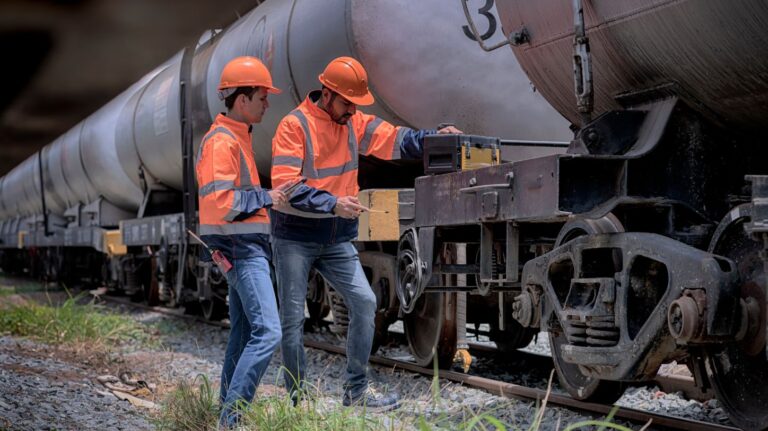Rail workers across Canada are gearing up for a potential strike that could disrupt the nation’s supply chains, affecting everything from grains to automotive manufacturing.
The Teamsters Canada Rail Conference (TCRC), representing over 9,000 employees at Canadian National Railway (CN) and Canadian Pacific Kansas City Ltd. (CPKC), has authorised strike action as early as May 22 if negotiations with the freight carriers fail to reach a satisfactory agreement.
The rail workers, including locomotive engineers, conductors, yard workers and rail traffic controllers, have been operating without a contract since December 31, 2023. The TCRC has voiced concerns over attempts by the freight carriers to roll back safety measures, which they deem critical for workers’ wellbeing.
According to Eugene Bernard, a train conductor at CN, the primary issue at stake is safety on the job. Bernard told Militant about the ongoing risks faced by rail workers, referencing previous accidents and fatalities, including the Lac-Megantic train derailment a decade ago.
Both CN and CPKC have presented proposals directly to their employees, bypassing the union, a move reportedly criticised by the TCRC as an attempt to undermine the union’s authority and influence. The proposals have stirred apprehension among workers, particularly regarding proposed changes to work schedules and wage structures.
Jourdain Dumont, a conductor at CN, expressed concerns about the long-term implications of the proposed changes, suggesting that enticing offers of immediate financial gains could mask potential future drawbacks for workers.
The impending strike action has also raised concerns across various sectors, particularly within the grains industry. The Grain Growers of Canada (GGC) has warned that disruptions to rail logistics could severely impact grain transportation, potentially leading to decreased export volumes and strained international relationships.
Brendan Phillips, second vice-chair of the GGC, said: “Consecutive supply chain disruptions have already strained our relationships with international buyers. Another stoppage could drive them to seek other markets, affecting us in the long term.”
GGC underscored the critical role of rail logistics in Canadian grain trade operations, with approximately 94% of all Canadian grain transported by rail.
The strike threat comes amidst broader political and economic dynamics, with implications extending beyond the rail sector. The Trudeau government’s stance on the potential strike remains uncertain, raising questions about the role of political intervention in resolving the labour dispute.
As negotiations continue and the strike deadline approaches, rail workers and industry stakeholders alike are bracing for potential disruptions while emphasising the importance of prioritising safety and fair working conditions.







